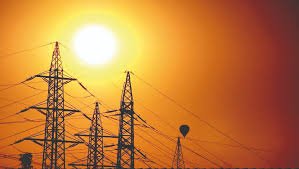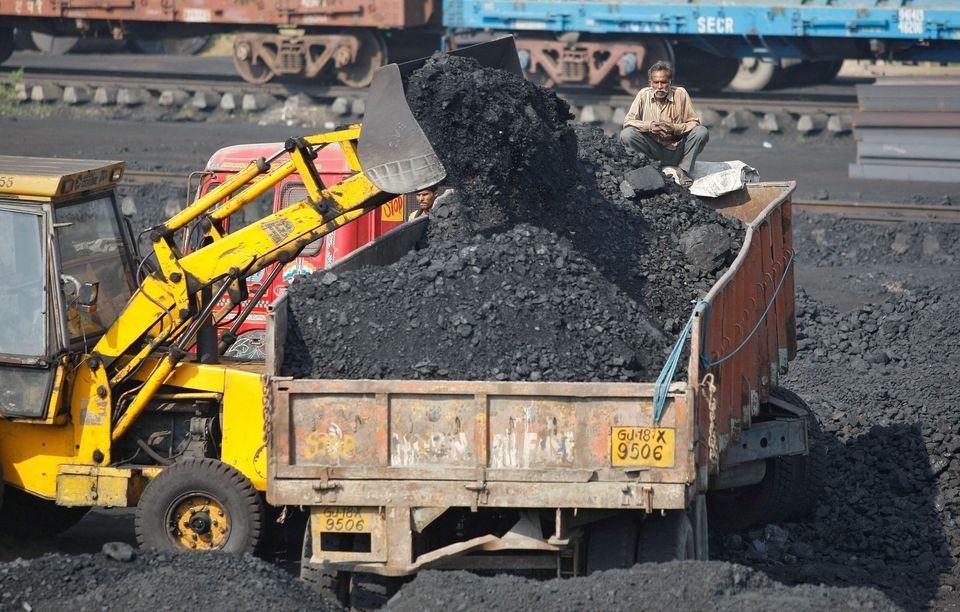NEW DELHI, April 4: The government has asked all power plants to operate at full capacity as it pulls all the stops to meet peak electricity demand in the searing summer season, Power Minister R K Singh said on Thursday.
With the meteorological department forecasting a harsh and long summer, the government has asked all plants that are shut for maintenance or other reasons, to quickly start operating and harness surplus power available at generating stations dedicated to specific users.
The government is also ensuring that thermal power plants – the backbone of India’s electricity supply – have enough coal stocks to last through June and has asked all units to offer their uncontracted or surplus power in power exchanges.
In an interview with PTI, Singh exuded confidence of meeting peak summer demand without any disruption.
He said, “We are mobilising our entire capacity whether it is thermal, hydro, renewable or gas-based. So I think we will meet the demand.”
The Ministry of Power has projected a peak power demand of 260 gigawatt (GW) this summer (April-June), higher than the record of 243 GW in September last year.
The ministry had projected 229GW of peak power demand last year, but due to unseasonal rains the all-time high demand was recorded at 243GW in September 2023.
However, this year the Indian Meteorological Department (IMD) has forecast that India is set to experience extreme heat during the April-June (summer) period, with the central and western peninsular parts expected to face the worst impact.
Besides, above-normal heatwave days are likely over most parts of the plains during summer.
Ten to 20 days of heat waves are expected in different parts of the country against a normal of four to eight days, as per IMD projections earlier this week.
Singh said, “The Coal stocks are fine at power plants. Currently we have a coal stock of around 45 million tonnes (at power plants).”
He said he has reviewed all capacities, on which the country depends for power supplies.
“I am trying to take almost all the capacities online. Whatever (plant or generation capacity) is down either for planned maintenance (completed already) or whatever (plant) is on unplanned outage, we are trying to bring them online,” he said.
He informed that power demand has improved 9.5 per cent in the last year.
“The peak demand in 2013-14 was 130 GW to 140 GW. Today it is 243 GW. So it has gone up by 80 per cent,” he said.
He also informed that India has added capacity of about 200 GW which is mostly renewable.
“We are adding more capacity. We are setting up about 80 GW of thermal capacity. We have about 15 GW of hydro capacity under construction. I also have 103 GW of renewable energy capacity under construction,” he said, explaining about efforts being made to meet the ever-increasing power demand in the country.
He also said that India’s peak power demand would touch 400 GW by 2032.
The Ministry of Power has directed thermal power plants to carry out “advance planning” for power generation and avoid maintenance during the summer season.
Singh had earlier held a series of meetings with officials and emphasised the need for ensuring zero load shedding during the summer season.
During the review meetings, Singh stressed that adequate advance planning should be done by all stakeholders, so as to prevent a situation in which one state has surplus power while others face power shortages.
With regard to the energy being provided by imported coal-based power plants, the ministry may extend directions under section 11, that provides for running the power plants at full capacity, up to September 30, 2024.
The ministry has also directed power plants to shift their planned maintenance to the monsoon season instead of April-June.
The quantum of capacity under partial outages has come down and measures have been suggested to further reduce them, the power ministry had said on Tuesday.
Singh has also reviewed the status of 5.2 GW of non-operational thermal capacity and had directed that capacity additions in coal, hydro, nuclear, solar and wind would be monitored, so as to expedite their commissioning.
It was also discussed during the review meetings that the surplus power with captive plants be offered for sale in energy exchanges.
Thermal generating stations must offer their un-requisitioned /surplus power in power exchanges, as mandated by the recently notified rules.
The Power Minister has also directed that a meeting may be convened with all developers of gas-based power projects to review the operationalisation of gas-based capacity during the summer season.
The peak energy demand grew by 12.7 per cent from 2,15,888 MW in 2022-23 to 2,43,271 MW in 2023-24. While the peak demand met grew by 13.9 per cent from 2,10,725 MW in 2022-23 to 2,39,931 MW in 2023-24, as per the power ministry data. (PTI)












